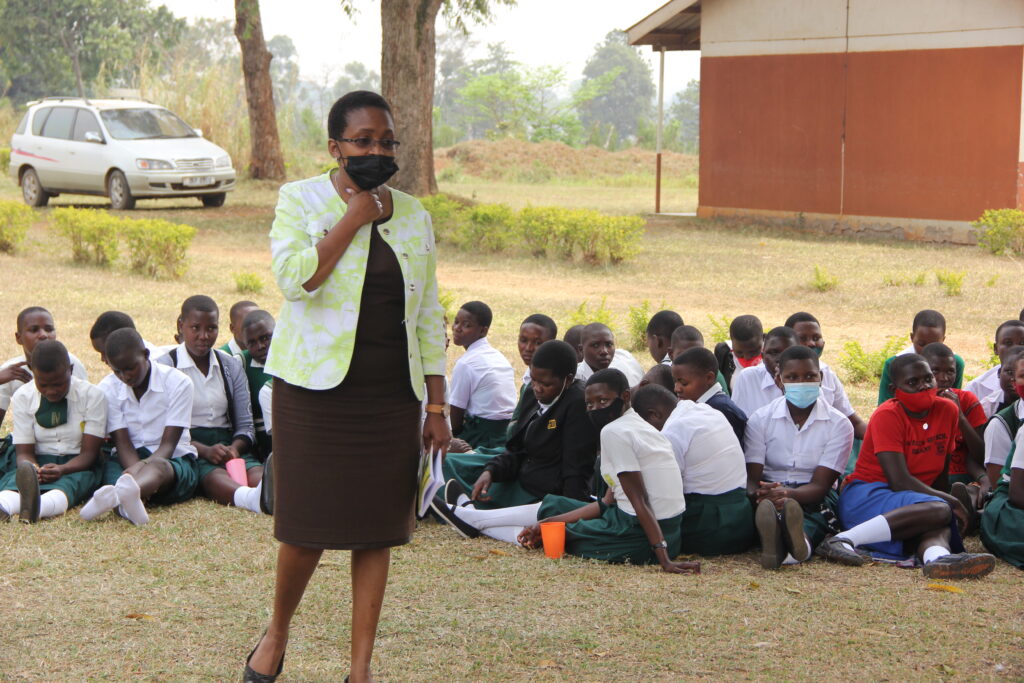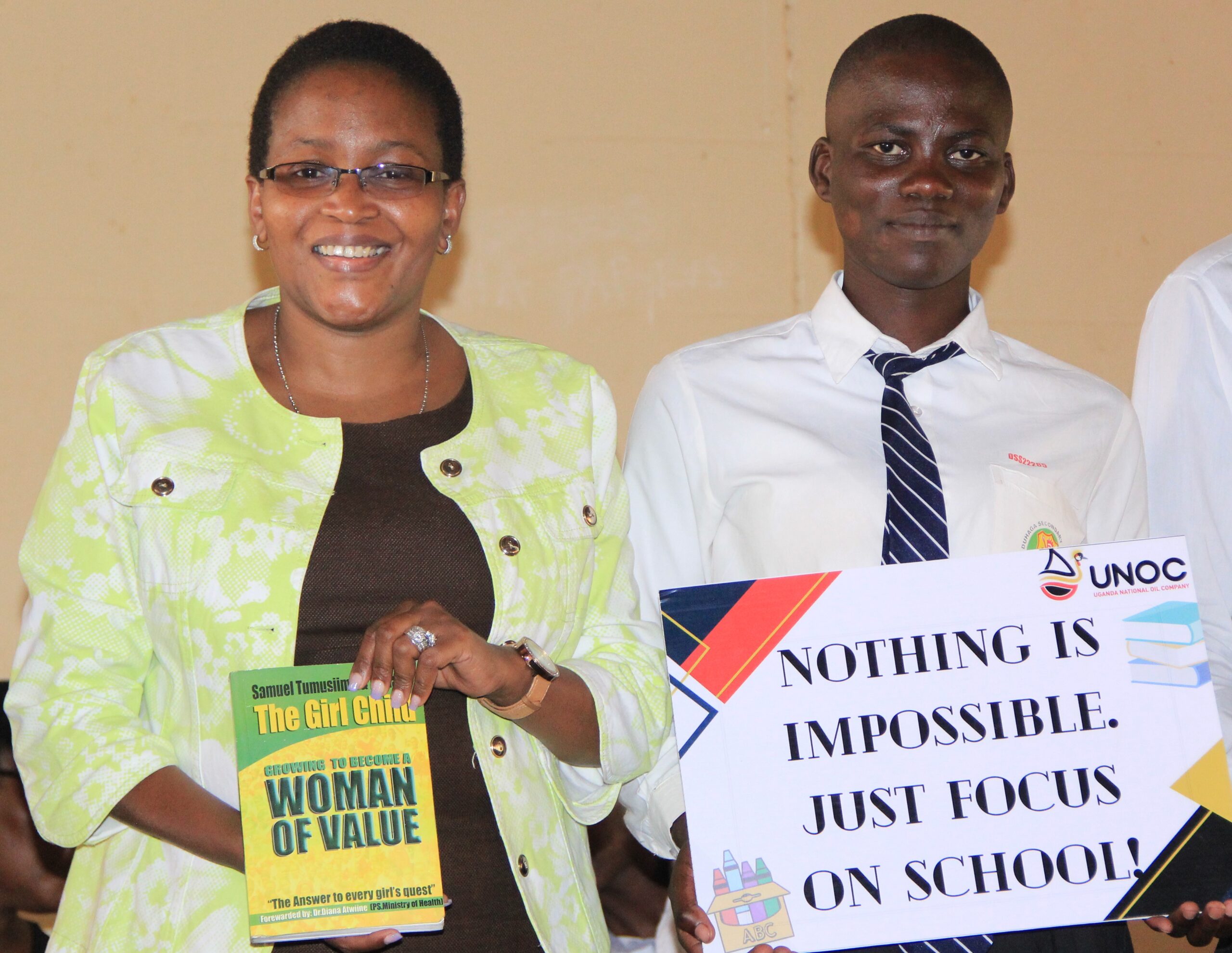In the course of the 1980s and 1990s the US philanthropy body: Carnegie Corporation of New York sustained a sociology Think Tank, “Carnegie Commission on adolescents development”.
It is devoted to documenting the taxonomy of reality besetting the maturation and fruition of a juvenile through the dark tunnel of transition from child to a responsible and productive adult.
Samuel Tumusiime and Hilda. C’s book, “The girl child; Growing to Become a Woman of Value” is an inadvertent regurgitation of the same endeavour from the unique angle of a community volunteer and social activist.
A girl-child specifically is defined simply as “someone’s daughter” reflecting the image of God.
Needless to say if there is a journey fraught with disaster, and untold pitfalls, is that of a girl’s transition to a woman of substance.
It is an enactment of slow-motion programme (genocide). The couetty of mankind in its vitiation and dismemberment of womankind is immeasurable and limitless.
Tumusiime and Hilda’s book features a prominent vibe “low self-esteem” which leads an individual to masochism, and couetty towards others known as sadism and misanthropy.
Cruelty and injustice targeted against the opposite sex of girl child and women is termed as misogyny.
The 248-page book where seven of them are replete with photographs of the author trying to talk to students in various schools on how to beat insurmountable odds to succeed, defines how to overcome inferiority complex as a girl.
The author simply tells girls that it is an education guidance social book that offers good tutelage as she traverses the journey of life-teenage to adulthood.
The book is also born out of the sheer desire by the writers to see the girl-child empowered through information that surrounds her, the environment in which she lives by highlighting pertinent issues in a solution-based approach on how to overcome them.
The authors took a detour on page 18 on a usually hushed topic of menstruation as a challenge (a normal monthly occurrence of every woman before menopause), where in Uganda it is a challenge because of lack of sanitary pads due to poverty.

The authors say what should be addressed is unsafe education environments within the school such as corporal punishments, violence and sexual violence and harassment by fellow students and teachers leading girls avoiding schools or their parents asking them to stay away from schools.
Tumusiime and Hilda argue that gender injustices against the girl-child and budding women of substance are simply part of the overall spectrum of insanity and madness (mass hysteria) engulfing Uganda.
They argue that a girl-child becomes a wife, leader and mother but remains vulnerable.
To paraphrase their argument on this, they are using the book to see a girl who is highly empowered through education but should embrace and remain in school and that is why it emphasises addressing school dropout.
Tumusiime and Hilda say much as boys are victims their emphasis in the book is more bent on girls because an empowered girl-child supersedes a boy child.
This is epitomised in five folds-becomes an independent citizen through empowerment especially education, will ensure his children attains education above hers, be a role model, takes care of their parents and siblings.
The book is sumptuously commendable for highlighting leading figures in the gender equality struggle.
However, two key role models appropriate for girl-children left out are Prof. Sylvia Tamale of Makerere University Law School and Dr. Stella Nyanzi, formerly of Makerere Institute of Social Research, a famous human rights activist, poetess, medical anthropologist, feminist, scholar of sexuality, family planning and public health figure.
The inevitable question arising out of the book then becomes” what shall we do?
The authors managed to design a holistic package of self-competency guidelines for girls which can launch a girl-child on a productive path of self-efficacy, self-esteem, self-confidence and perseverance, indeed “academic success”.
The book talks about teenage pregnancy which is a very critical issue and has adversely affected girl-children in rural and urban settings and remains the reason for accelerated poverty among some communities.
They say in Uganda a girl gets a child when she is not prepared to take care of a child when she is also a child which creates a vicious cycle of poverty that is spiraling all over the country.
It (book) also cautions girls on cross-generation affairs since it kills the spirit and true meaning of work.
This also, according to authors, develops a tendency of “I can easily get what I want using my body” thus killing the spirit of hard work, creativity and innovation.
The book which has five chapters written four years ago, says the aforesaid vice adversely affects them to develop suicide thoughts, ruined dreams, misguided objectives about life and negatively affects the girl-child.
Tumusiime and Hilda, talk about addictions which is a scourge eating up young people across the world but when it comes to Uganda they are not guided about its dangers.
There are many ways in which girls and boys are affected in the same measure where it alters their character, creates mood swings, and personalities and a previously minded girl all of a sudden becomes distant, dull, and drawn back.
Drug addiction has made girls to become incompetent, disinterested in life and exposes them to HIV/AIDS and unwanted pregnancies because in such circumstances they engage in risky sexual behaviours when their thinking is impaired.
The book helps the young, especially girls to know what is currently taking place in the world which is moving so fast and where parents don’t know who are supposed to be good guardians.
It helps a girl know how to go about them and stay safe because an informed person is an empowered being.
The book also helps girls understand dangers of teenage pregnancies, why it is important to stay in school, to achieve their dreams, confidence building, hard work and avoid short-cuts and self-worth.
It also comes in an era of identifying the right friends, who can be supportive and help you to stay focused on what to do, especially to stay in school.
The book says that progress of a girl-child is impeded by a high rate of moral degeneration fueled by forces of modernisation and globalisation.
It also avers that the enemy is ubiquitous. The power and grip of the drug cartels and empires, and all other aspects of the criminal underworld of human trafficking and counterfeiting are digging deeper into the roots of society.
Tumusiime and Hilda’s book is an invaluable social critique bringing to the fore in forceful immediate ways the necessity to forge meaningful social programmes targeted at safeguarding productive management of girls’ development, and providing affirmative action inroads by stakeholders to stem waste, delinquency and un-employment rates among budding women of substance.
The book concludes that the place of women is no longer as household keepers, but they are equal and indispensable partners in the workplace.
They must be equipped to handle tasks and modus operandi: of the workplace.
In February, this year, the Executive Director of Uganda National Oil Company (UNOC) Proscovia Nnabanja, procured more than 100 copies of the book that she distributed to secondary schools in Hoima and Kikuube districts in Western Uganda, to empower girl children on how to achieve their goals and succeed in life.

Nnabanja said with the discovery of oil in the area, this means many opportunities have come, adding that girls needed to complete school and be able to benefit from it.
“No matter what school one goes to, one can achieve as long as they are determined,” she said.
The UNOC executive director implored students to get better role models and embrace reading as a culture to improve on their comprehension and academics.
Buseruka secondary, Butiaba Seed School, St. Thomas Moore, Duhaga and Kiziranfumbi secondary schools, all got donations of the book she described as a must read for the young to make informed decisions about their life goals.


Well done! This article provides a fresh perspective on the topic. Thanks for sharing your expertise.
Hi, i think that i saw you visited my website thus i came to “return the favor”.I’m trying to find things to improve my web site!I suppose its ok to use a few of your ideas!!
I have been checking out a few of your stories and i must say nice stuff. I will surely bookmark your blog.
I want looking through and I conceive this website got some really utilitarian stuff on it! .